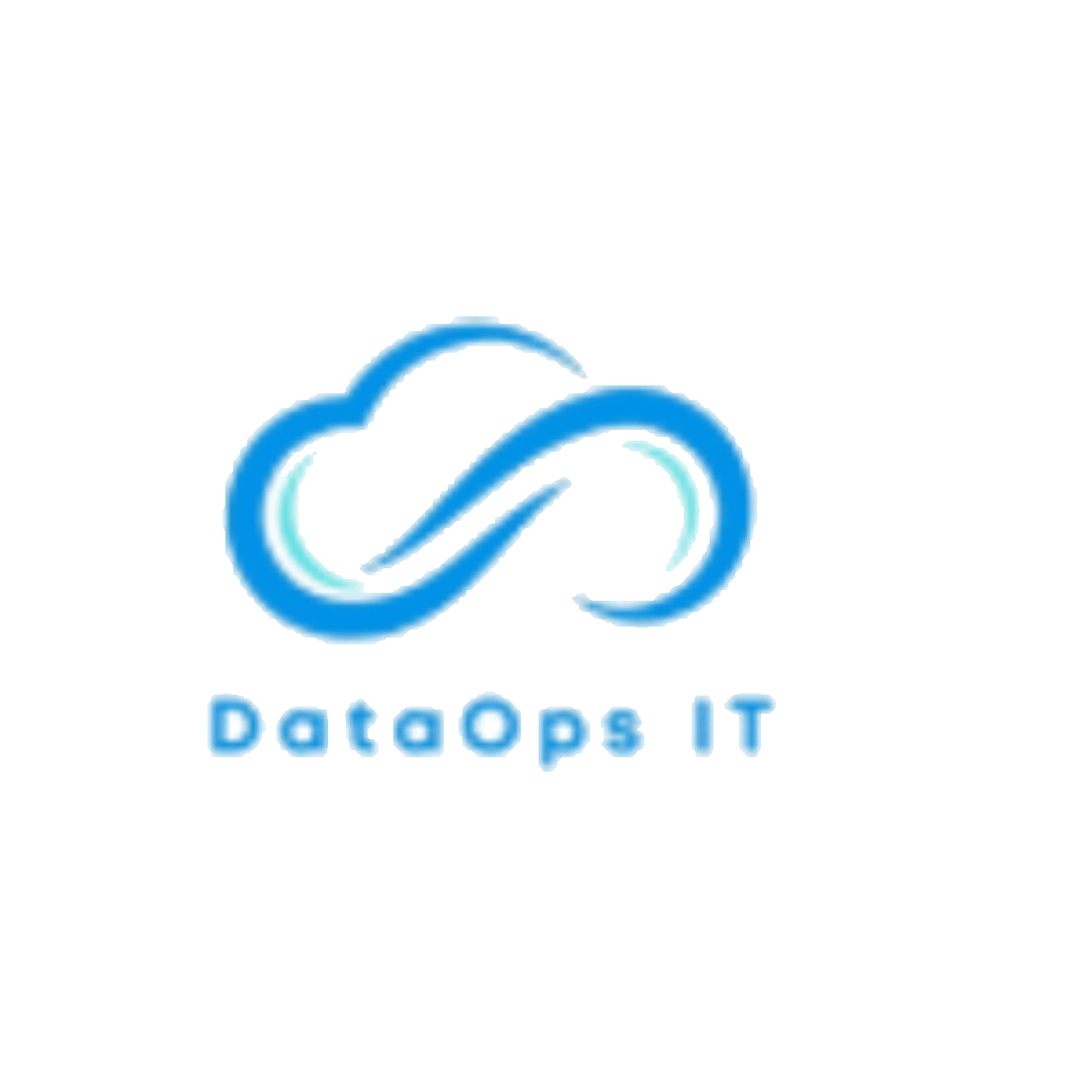Carbon Reduction Plan
Executive Summary
.DataOps IT Ltd is committed to achieving net-zero carbon emissions and implementing sustainable practices across all business operations. As a leading provider of cloud services, database management, and IT consulting solutions in the UK, we recognize our responsibility to minimize environmental impact while delivering exceptional technology services to our clients.
This Carbon Reduction Plan outlines our comprehensive strategy to reduce greenhouse gas emissions, transition to renewable energy sources, and promote sustainable practices throughout our operations and supply chain. We are committed to achieving a 50% reduction in carbon emissions by 2030 and net-zero emissions by 2050, in alignment with the UK government's climate targets.
Company Overview
Company Name: DataOps IT Ltd Website: https://www.dataopsit.io/
Industry: Information Technology Services
Business Operations: DataOps IT specializes in cloud infrastructure, database optimization, and data analytics solutions, serving clients across healthcare, financial services, e-commerce, manufacturing, government, and technology sectors.
Current Carbon Footprint Assessment
Scope 1 Emissions (Direct Emissions)
- Facilities: Office heating, cooling, and on-site energy consumption
- Transportation: Company vehicles and business travel
- Estimated Annual Emissions: 45 tonnes CO₂e
Scope 2 Emissions (Indirect Energy Emissions)
- Electricity Consumption: Office facilities and operational infrastructure
- Purchased Energy: Grid electricity for office operations
- Estimated Annual Emissions: 120 tonnes CO₂e
Scope 3 Emissions (Other Indirect Emissions)
- Cloud Infrastructure: Third-party cloud services (AWS, Azure, Google Cloud)
- Employee Commuting: Daily commuting and remote work energy use
- Supply Chain: IT equipment procurement and vendor services
- Client Services: Energy consumption related to managed database services.
- Estimated Annual Emissions: 380 tonnes CO₂e
Carbon Reduction Targets
Short-term Goals (2025-2027)
- 15% reduction in overall carbon emissions by 2027
- Transition 50% of office energy consumption to renewable sources
- Implement green cloud optimization strategies for client projects
- Establish comprehensive carbon monitoring and reporting systems
Medium-term Goals (2028-2030)
- 50% reduction in overall carbon emissions by 2030
- Achieve 100% renewable energy for all direct operations
- Partner exclusively with carbon-neutral cloud providers
- Implement sustainable travel and remote work policies
Long-term Goals (2031-2050)
- Achieve net-zero carbon emissions by 2050
- Become carbon negative through verified offset programs
- Lead industry transformation toward sustainable IT practices
- Support client carbon reduction initiatives through green technology solutions
Carbon Reduction Strategies
1. Green Cloud Infrastructure
Objective: Optimize cloud services to minimize environmental impact
Actions:
- Prioritize cloud providers with renewable energy commitments (AWS renewable energy, Azure carbon negative, Google Cloud carbon neutral)
- Implement cloud resource optimization to reduce unnecessary compute and storage usage
- Deploy auto-scaling and rightsizing strategies to minimize energy consumption
- Utilize cloud-native architectures that inherently consume less energy
- Recommend green cloud regions for client deployments
2. Energy Efficiency and Renewable Energy
Objective: Transition to sustainable energy sources for all operations
Actions:
- Install solar panels on office facilities where feasible
- Switch to 100% renewable energy suppliers for all office locations
- Implement energy-efficient LED lighting and smart building systems
- Deploy energy management systems with real-time monitoring
- Establish energy efficiency standards for all new equipment purchases
3. Sustainable Data Center and Database Practices
Objective: Reduce energy consumption in data management operations
Actions:
- Optimize database queries and indexing to reduce processing power requirements
- Implement database consolidation and virtualization strategies
- Deploy efficient backup and disaster recovery solutions with minimal energy footprint
- Utilize data compression and deduplication technologies
- Recommend energy-efficient database architectures to clients
4. Sustainable Transportation and Remote Work
Objective: Minimize transportation-related carbon emissions
Actions:
- Promote hybrid and remote work arrangements to reduce commuting
- Implement virtual meeting technologies to minimize business travel
- Transition company vehicles to electric or hybrid alternatives
- Establish sustainable travel policies prioritizing rail over air travel
- Provide cycling incentives and public transport subsidies for employees
5. Circular Economy and Waste Reduction
Objective: Minimize waste and promote equipment lifecycle extension
Actions:
- Implement comprehensive IT equipment recycling and refurbishment programs
- Partner with certified e-waste recycling vendors
- Establish equipment leasing models instead of purchasing where appropriate
- Promote paperless operations and digital documentation
- Implement sustainable procurement policies prioritizing environmentally certified suppliers
6. Green Software Development and Operations
Objective: Develop and promote environmentally sustainable software practices
Actions:
- Implement green coding practices to reduce computational requirements
- Optimize DataOps pipelines for energy efficiency
- Deploy containerization and microservices to improve resource utilization
- Establish performance monitoring focused on energy consumption metrics
- Educate development teams on sustainable software engineering practices
Implementation Timeline
Phase 1: Foundation (Q1-Q2 2025)
- Complete comprehensive carbon footprint assessment
- Establish carbon tracking and monitoring systems
- Begin renewable energy supplier transition
- Launch employee sustainability training programs
- Implement initial cloud optimization strategies
Phase 2: Acceleration (Q3 2025-Q2 2026)
- Complete renewable energy transition for office operations
- Deploy advanced database optimization programs
- Implement sustainable travel and remote work policies
- Launch client green technology consulting services
- Establish circular economy waste management programs
Phase 3: Optimization (Q3 2026-2030)
- Achieve 50% overall carbon reduction target
- Implement advanced carbon offset programs
- Launch industry leadership initiatives in sustainable IT
- Develop carbon-neutral service offerings for clients
- Establish supply chain sustainability requirements
Phase 4: Net-Zero Achievement (2031-2050)
- Achieve net-zero carbon emissions across all operations
- Transition to carbon-negative status through verified offsets
- Lead industry transformation through thought leadership and best practices
- Support client net-zero achievement through green technology solutions
Monitoring and Reporting
Carbon Tracking System
- Deploy comprehensive carbon accounting software for real-time emissions monitoring
- Establish monthly reporting dashboards for all emission categories
- Implement automated data collection from cloud providers and energy suppliers
- Create quarterly sustainability reports for stakeholders and clients
Key Performance Indicators (KPIs)
- Total carbon emissions (tonnes CO₂e annually)
- Energy consumption per employee (kWh per FTE)
- Cloud resource efficiency (compute utilization rates)
- Renewable energy percentage (% of total energy consumption)
- Employee commuting emissions (tonnes CO₂e per employee)
- Client green project percentage (% of projects with sustainability focus)
Verification and Compliance
- Annual third-party verification of carbon emissions data
- Compliance with UK government carbon reduction reporting requirements
- Participation in industry sustainability benchmarking programs
- Regular updates to carbon reduction targets based on scientific recommendations
Stakeholder Engagement
Employee Engagement
- Comprehensive sustainability training programs for all staff
- Green technology certification opportunities
- Sustainability suggestion and innovation programs
- Remote work and flexible transportation support
- Regular communication about progress and achievements
Client Engagement
- Green technology consulting services and recommendations
- Carbon footprint assessment and reduction planning for client projects
- Sustainable cloud migration and optimization services
- Industry best practice sharing and thought leadership
- Collaborative sustainability initiatives and partnerships
Supplier Engagement
- Sustainability criteria integration into vendor selection processes
- Regular carbon footprint assessments of key suppliers
- Collaborative emission reduction programs with cloud providers
- Preference for suppliers with verified sustainability commitments
- Supply chain transparency and reporting requirements
Risk Management and Contingency Planning
Climate-Related Risks
- Physical Risks: Extreme weather impact on office operations and data centers
- Transition Risks: Regulatory changes and carbon pricing mechanisms
- Technology Risks: Dependence on third-party cloud providers for emissions reductions
- Market Risks: Client demand for sustainable services and competitive pressures
Mitigation Strategies
- Diversified renewable energy sources and backup systems
- Flexible carbon reduction strategies adaptable to regulatory changes
- Multi-cloud architecture to optimize for sustainability across providers
- Proactive development of green service offerings ahead of market demand
Innovation and Technology Development
Research and Development Focus
- Development of proprietary green database optimization algorithms
- Creation of carbon-aware DataOps pipeline automation tools
- Innovation in energy-efficient data processing and storage solutions
- Advancement of sustainable software engineering methodologies
Industry Collaboration
- Participation in industry sustainability working groups and standards development
- Collaboration with cloud providers on renewable energy and efficiency initiatives
- Partnership with academic institutions on sustainable technology research
- Contribution to open-source green computing projects and initiatives
Communication and Transparency
Public Reporting
- Annual sustainability reports published on company website
- Regular blog posts and articles about sustainability initiatives and achievements
- Speaking engagements at industry conferences on sustainable IT practices
- Social media updates highlighting environmental milestones and best practices
Industry Leadership
- Active participation in UK tech industry sustainability initiatives
- Membership in relevant environmental and sustainability organizations
- Contribution to industry standards and best practice development
- Mentorship and support for smaller companies implementing sustainability programs
Conclusion
DataOps IT Ltd is committed to becoming a leader in sustainable technology services while maintaining our position as a premier provider of cloud and database solutions. This Carbon Reduction Plan represents our dedication to environmental responsibility and our belief that sustainable practices are essential for long-term business success.
Through comprehensive emission reduction strategies, strategic investments in green technology, and collaborative partnerships with clients and suppliers, we will achieve our ambitious carbon reduction targets while continuing to deliver exceptional value to our stakeholders.
We recognize that the journey to net-zero emissions requires continuous innovation, adaptation, and commitment. DataOps IT Ltd is prepared to lead this transformation, demonstrating that environmental sustainability and business excellence are not only compatible but mutually reinforcing.
Our success will be measured not only by our own carbon reduction achievements but also by our ability to enable our clients and industry partners to achieve their sustainability goals through innovative, efficient, and environmentally responsible technology solutions.
This Carbon Reduction Plan represents DataOps IT Ltd's commitment to environmental sustainability and serves as our roadmap for achieving net-zero carbon emissions. We welcome feedback, collaboration opportunities, and partnerships that advance sustainable technology practices across the industry.
At DataOps IT Ltd, We're Committed To Business
Take the first step towards achieving your business goals by contacting us today. Schedule a consultation with one of our Cloud & Database specialists to discuss your objectives and explore how our innovative solutions can propel.

